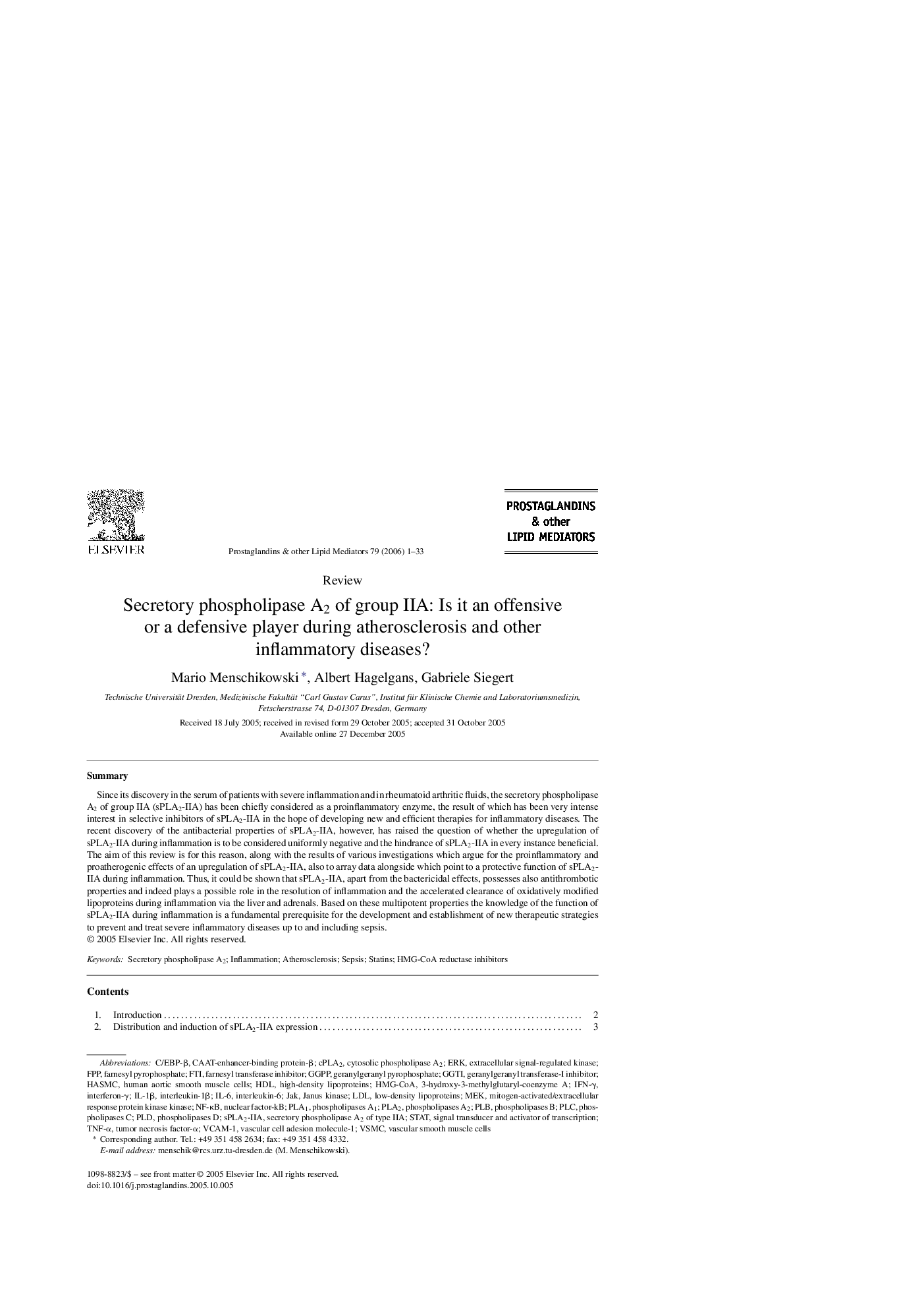| Article ID | Journal | Published Year | Pages | File Type |
|---|---|---|---|---|
| 2020039 | Prostaglandins & Other Lipid Mediators | 2006 | 33 Pages |
SummarySince its discovery in the serum of patients with severe inflammation and in rheumatoid arthritic fluids, the secretory phospholipase A2 of group IIA (sPLA2-IIA) has been chiefly considered as a proinflammatory enzyme, the result of which has been very intense interest in selective inhibitors of sPLA2-IIA in the hope of developing new and efficient therapies for inflammatory diseases. The recent discovery of the antibacterial properties of sPLA2-IIA, however, has raised the question of whether the upregulation of sPLA2-IIA during inflammation is to be considered uniformly negative and the hindrance of sPLA2-IIA in every instance beneficial. The aim of this review is for this reason, along with the results of various investigations which argue for the proinflammatory and proatherogenic effects of an upregulation of sPLA2-IIA, also to array data alongside which point to a protective function of sPLA2-IIA during inflammation. Thus, it could be shown that sPLA2-IIA, apart from the bactericidal effects, possesses also antithrombotic properties and indeed plays a possible role in the resolution of inflammation and the accelerated clearance of oxidatively modified lipoproteins during inflammation via the liver and adrenals. Based on these multipotent properties the knowledge of the function of sPLA2-IIA during inflammation is a fundamental prerequisite for the development and establishment of new therapeutic strategies to prevent and treat severe inflammatory diseases up to and including sepsis.
